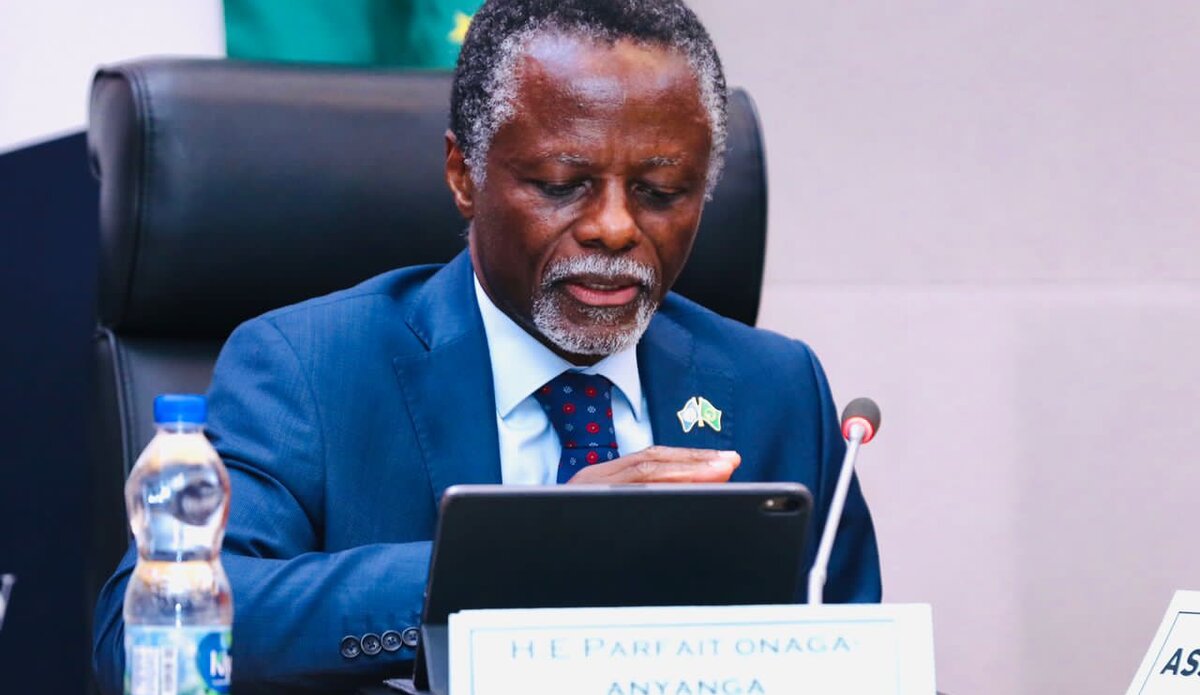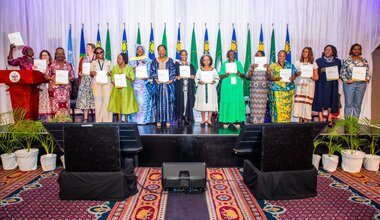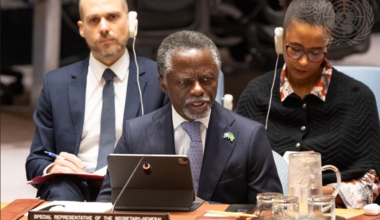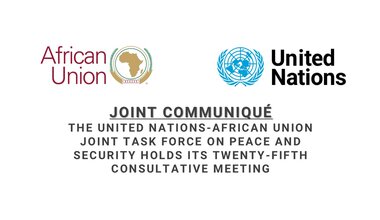SRSG ONANGA-ANYANGA'S REMARKS AT THE AU SSR 10TH ANNIVERSARY
Statement by Mr. Parfait Onanga-Anyanga
Special Representative of the Secretary-General to the
African Union and Head of the United Nations Office to the African Union
Remarks to the Conference to mark the
Ten-Year Implementation of the AU SSR Policy Framework:
“The African Union Security Sector Reform Policy Framework: A Decade of Implementation: Successes, Challenges, and Perspectives for the Future”
Addis Ababa, 21 November 2023
Ambassador Bankole Adeoye, AU Commissioner for Political Affairs, Peace and Security
Your Excellency, Dr Mohamed Ibn Chambas, AU High Representative for Silencing the Guns
Mrs Patience Chiradza, Director Governance and Conflict Prevention
Dr Niagale Bagayoko, ASSN Chair
Esteemed representatives from the Regional Economic Communities and Regional Mechanisms
Esteemed representatives from the diplomatic community
Excellencies, Ladies And Gentlemen
At the outset, I would like to thank the African Union for organizing this timely event and for inviting the UN, alongside partners such as the African Security Sector Network (ASSN), and the Just Future Alliance.
This meeting provides us all a unique opportunity to discuss the successes, challenges, and perspectives for the future related to the implementation of Security Sector Governance and Reform (SSG/R) processes on the African continent via the AU SSR Policy Framework.
Over the last decade, the global landscape of armed conflict as well as the dynamics on the ground have changed. Both the last report of the UN Secretary-General on Strengthening SSR in 2022, as well as the New Agenda for Peace in 2023, highlight the new challenges we face in sustaining peace and security.
Although we are still focused on promoting peace and preventing conflict, it is also clear that there is a changing nature of armed conflict, with a stronger role for non-state armed groups, terrorist activities, intensified local and regional dynamics on the ground, as well as an increase in unconstitutional transitions.
Security Sector Governance and Reform (SSG/R) should be a key element of the political processes of states emerging from conflict and of the strengthening of rule of law institutions. In this context, SSG/R should be addressed early on, as it plays a key role in different phases on the conflict cycle, including in peacebuilding and sustaining peace, but also related to conflict prevention, as well as the stabilization and post-conflict reconstruction.
SSG/R support should go beyond just conflict-related settings. SSG/R processes, support governments to develop representative, effective and accountable security sector governance institutions that emphasize the security and justice needs of the population and facilitate sustainable development.
However, this is not an easy process. It must deal with many challenges and sensitivities, as many actors are involved with different priorities and power struggles.
How can we deal with these challenges and sensitivities – and how can we provide optimal support to countries and the population? And what role can the discussions play during this conference?
I would like to highlight three key guiding principles that can contribute to develop successful SSG/R processes, based on principles mentioned in the New Agenda for Peace (2023) as well as the UN Secretary-General Report on Strengthening SSR (2022) and the AU SSR Policy Framework.
The foremost guiding principle is trust. This is the cornerstone of the security system. Robust security institutions hinge on integrity, accountability, and transparency. These elements are essential to create trust in national institutions. In addition, trust between governments and their people is necessary to have functioning societies.
The second guiding principle is national ownership. As the AU SSR policy framework also highlights, this entails national responsibility and commitment. It encompasses the allocation of human and financial resources. A strong political leadership and a clear political will of national authorities are essential for the success of SSG/R processes. Political buy-in, engagement and planning are also an integral part of larger peacebuilding and development strategies.
The third and last principle refers to inclusivity. This means giving greater attention to the security and justice needs of all people, women, children, men, and the youth. A people-centered approach to SSG/R is crucial for sustaining peace.
During this conference, it would be important to share experiences and build on the successes and challenges to develop recommendations for SSG/R implementation in the future.
When doing so, it is vital to adopt a comprehensive approach and consider linkages to enhance synergy between various topics such as SSG/R, DDR, transitional justice, human rights, development or national reconciliation.
This is also true for the different flagship initiatives and programs, including Agenda 2030 and Agenda 2063, the New Agenda for Peace, as well as the AU Roadmap to Silencing the Guns, the UN and AU SSR Policy Frameworks, the Post Conflict Reconstruction and Development Policy (PCRD), and the African Peace and Security Architecture (APSA). SSG/R needs indeed to be part of a comprehensive approach.
In the end, it is this holistic approach and joint efforts that will contribute to sustainable peace and security. This conference offers a chance to critically reflect on the implementation of SSG/R on the African continent.
It also provides an opportunity to share experiences and learn lessons in order to address more effectively the changing realities on the ground.
To this end, it is crucial for all of us to work jointly to achieve our shared goals. This is consistent with the United Nations – African Union Joint Framework for Enhanced Partnership in Peace and Security. Similarly, the UN SG Report on Strengthening SSR underlines the importance of partnerships with organizations such as the African Union. It is important to continue to incorporate Security Sector Governance and Reform (SSG/R) into these strategic partnerships.
I am convinced that the African Union, in cooperation with the Regional Economic Communities and Regional Mechanisms (RECs/RMs), will continue to play an essential role in supporting and guiding SSG/R efforts in Africa.
The United Nations looks forward to continuing the partnership and to work together towards sustainable peace in Africa by strengthening Security Sector Governance and Reform efforts
Let me conclude by wishing you fruitful deliberations.
Thank you for your kind attention.
 UN
UN






